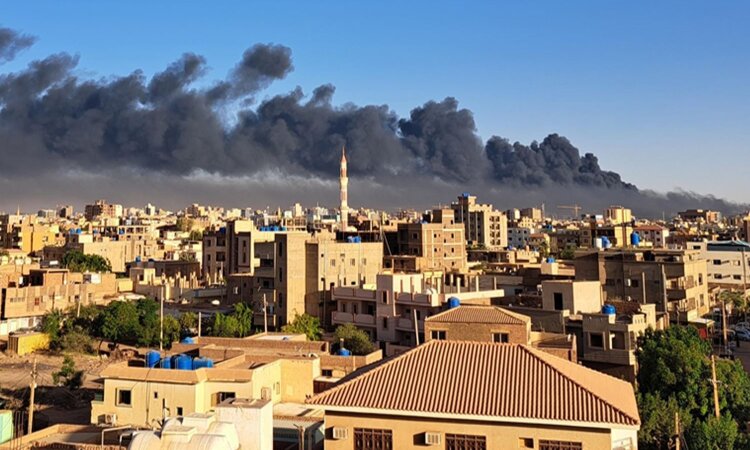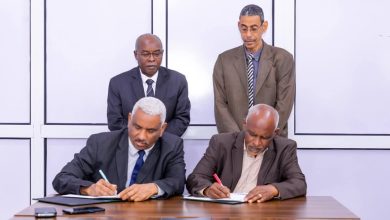Proposals for a Post war economy in Sudan

Report – Rehab Abdullah
Dr. Loay Abdel Moneim, banking expert, has put forwards a number of proposals to help improve the economic performance of the country in the post war period and how to improve state resources, maximize revenues and the value of the currency.
He also added in an intervention in the platform of My Country’s Experts, that the golden pound to be a means of trading within banks as a product to enhance bank liquidity, as well as linking the value of the Sudanese pound to gold when it comes to some specific exports. He also suggested that a rewarding tax reduction be introduced to encourage taxpayer and avoid tax evasion, pay their due taxes. He referred to the significant decline in natural resources due to increase tax evasion in the pre-war period.
Deed of Dignity
The experts have suggested a product, bonds, to enhance state revenues through bonds to be labeled (Dignity Instrument) for expatriates and a segment for traders, provided that the sukuk funds are invested in a specific and exclusive investment in gold extraction, pointing out that gold affects the value of the Sudanese pound and the size of the reserves held by the Central Bank. He stressed the importance of increasing the percentage of returns in a way that enhances the state budget, as well as increasing foreign investments by offering certain investment opportunities. He suggested focusing on dealing with China so that it continues its efforts to increase oil production, but also the United States of America, Russia, Turkey, India and Egypt to enhance the volume of trade exchange with them.
He said this can be achieved by providing guarantees.
Strengthening the pound
However, the expert at the Bank of Sudan, Magdi Noreen, pointed to the strength gained by the pound during the period of oil extraction, and the improvement of the economic indicators in the country. He argued that strengthening the value of the currency requires strengthening the economy, not just measures to convert the gold currency and convert it into a coin.
He stressed that the value of the pound is one of the main factors in the balance of payments and the trade balance , “the value of exports against the value of imports” he said whenever there is a surplus in the trade balance you have a good outcome of foreign currencies and the balance of the current account, so you have strong purchasing power to enable you in imports and secure needs, and thus automatically the internal demand for petroleum or agricultural raw materials increases, thus the need for the Sudanese currency increases.
Trade Balance Deficit
The banking expert, Dr. Loay Abdel Moneim, reacting to the comment of Dr. Magdy Noreen, said that the trade balance deficit is a major reason for the economic crisis facing Sudan beside the structural imbalances.
He believes that the imbalance in the trade balance is not a new issue for those who inherited a weak economy from the colonizers, pointing out that in 2015 the exports reached 3 billion and 169 million dollars, while the imports, because of ill-considered decisions, reached 9 and a half billion dollars, so the deficit became in the range of 6 billion and 340 million dollars. He regretted that this was done during the salvation rule.
Louay accused the commander of the RSF Militia forces “Hemedti” of managing the Sudanese economy when he was chair of the Economic Committee.
He accused him of taking very serious decisions that negatively affected the economy, pointing to the smuggling of approximately 97 to 100 tons of gold during the period of the revolution compared to gold that was smuggled in recent years which was estimated at 350 tons, stressing that smuggling of gold confirms that the problem is old since the salvation time and also showed the inability to control corruption associated with gold smuggling in economic institutions.
He said that Hemedti’s decisions raised the almost unstudied import to $ 11.2 billion, and while the exports did not exceed $ 3.5 billion, which led to an unprecedented deficit in the trade balance and caused many problems, the first of which was the failure to pay salaries regularly, a deficit in maintenance of electricity and water networks, environmental sanitation and the health sector, a deficit in financing agriculture so that the Ministry of Finance has been reluctant to set an incentive price and sometimes does not buy wheat from farmers .
Louay also pointed to Hemedti’s pressure on the government to approve the port of Abu Amama without the slightest details about the possible return obtained by the government in the leasing period.
He argued that they as experts always warn that economic institutions are infiltrated.
He called for the development of policies that limit unstudied imports and unnecessary spending, to improve the position of the trade balance, and criticized customs exemptions.
External Support
However, Professor Abdullah Al-Ramadi considered the proposals good, but they are not suitable in the conditions of war that Sudan is currently experiencing.
He said it was not logical to talk now about taxes and how they can be collected from a person whose factory was robbed and manufactured materials and raw materials stolen and equipment destroyed, so where can he pay taxes, and called for considering supporting Sudan with international grants.



